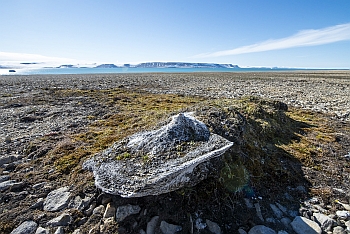Ecological consequences of four hundred years resource exploitation on Svalbard

Recent historical and archaeological publications indicate that natural-resource exploitation in Svalbard has caused serious changes in the local environment. The exploitation has reduced populations, changed food chains, fertility and vegetation and thus ecosystems. Game animals like whale, walrus, polar bear, reindeer and Arctic fox have been reduced in number, making food available for other creatures that could increase in number. The vegetation around the whaling stations and trapper cabins has changed in composition and expanded dramatically because of fertilisation caused by the remains of killed animals. At certain places, mining has destroyed the local landscape and domestic animals introduced by miners have fertilised and changed the tundra vegetation in and around settlements. In this way, four hundred years of exploitation has changed the pristine Arctic ecosystems in Svalbard enormously. However, biologists mostly do not consider the consequences of natural-resource exploitation and work with the current ecosystem as the original system. In environmental impact assessments, the recent ecosystems are used as the starting point.
That is why this post-doc project proposes a retrospective study to provide an indication of the effects of four centuries of whaling, hunting, and mining on the three main ecosystems on the west coast of the island of Spitsbergen. This research will use the historical documents. The (bio)archaeological objects, and the historical sites studied recently as main sources of information. The outcome of this synthesis will be compared with the results of the investigation of historical population size based on genetic markers.
